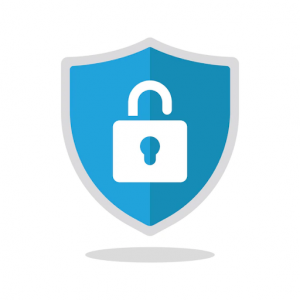
In today’s digital age, where cyber threats are increasingly sophisticated, VPNs (Virtual Private Networks) have become essential tools for enhancing online security.
This comprehensive guide explores the importance of VPNs, how they contribute to online security, and what to consider when choosing a VPN.
The Need of VPNs for Online Security
VPNs create a secure, encrypted tunnel between your device and the internet, protecting your data from interception and eavesdropping.
They mask your IP address, making your online activities more private and secure.
Why is there a rising need for enhanced online security?
With increasing incidents of data breaches, identity theft, and online surveillance, the need for enhanced security measures like VPNs has become more critical than ever.
How VPNs Enhance Security
Encryption
Encryption is the first line of defense.
VPNs use strong encryption protocols to secure your data. This encryption makes it nearly impossible for hackers or any unauthorized entities to decode your information.
Anonymity and Privacy
By masking your IP address, VPNs ensure your online actions remain anonymous.
This prevents advertisers, internet service providers (ISPs), and even governments from tracking your online behavior.
Safe Use of Public Wi-Fi
Public Wi-Fi networks are notoriously insecure.
VPNs encrypt your data, safeguarding it from potential threats on public networks.
Bypassing Censorship and Surveillance
In countries with heavy internet restrictions and surveillance, VPNs enable users to bypass censorship and protect their communications from government monitoring.
Choosing the Right VPN for Security
Factors to Consider
When selecting a VPN for security purposes, consider factors like:
- Encryption strength
- No-logs policy
- Server locations
- Provider’s reputation
Paid vs. Free VPNs: A Security Perspective
While free VPNs may be appealing, they often lack robust security features and might even compromise your privacy.
Paid VPNs generally offer better security and privacy.
VPN Protocols and Security
Overview of Different Protocols
Different VPN protocols offer varying levels of security. Protocols like OpenVPN, IKEv2, and WireGuard are known for their strong security features.
Choosing the Most Secure Protocol
Select a VPN protocol based on your security needs. OpenVPN is widely regarded as a good balance between security and speed.
Common Misconceptions About VPNs
- VPNs and Complete Anonymity: While VPNs provide a high degree of privacy, they don’t guarantee complete anonymity.
- VPNs as a Standalone Security Solution: VPNs are vital for online security but should be used in conjunction with other security measures, like antivirus software and secure passwords.
It’s important to understand their limitations.
VPNs in Different Scenarios
Personal Use of VPNs
Enhanced Privacy and Security in Daily Online Activities
Individuals use VPNs primarily to protect their privacy and enhance security, especially when engaging in activities that involve sensitive data. This includes online banking, shopping, and even casual browsing.
VPNs encrypt the internet connection, safeguarding personal information from potential cyber threats like identity theft or data interception.
Accessing Geo-Restricted Content
Many users employ VPNs to access content that is not available in their region, such as streaming services, news websites, and social media platforms.
By connecting to servers in different countries, individuals can bypass regional restrictions and enjoy a wider range of online content.
Safe Usage of Public Wi-Fi Networks
When connecting to public Wi-Fi in places like cafes, airports, or hotels, VPNs provide a crucial security layer.
Public networks are often unsecured, making them hotspots for cybercriminals to steal data. A VPN encrypts the data transmitted over these networks, thereby protecting users from such vulnerabilities.
Business Use of VPNs
Secure Remote Access to Corporate Networks
Businesses increasingly rely on VPNs to enable secure remote access to their internal networks, especially with the rise of remote and hybrid work models.
Employees can access company resources from any location without compromising the security of sensitive corporate data.
Protecting Sensitive Business Data
VPNs are critical in safeguarding business data during transmission over the internet.
This is particularly important for industries dealing with highly sensitive information like finance, healthcare, and legal services.
Ensuring Secure Communication and Collaboration
In the business environment, secure communication is paramount.
VPNs facilitate encrypted communication channels for employees, ensuring that discussions, file transfers, and collaborations remain confidential and protected from potential eavesdropping.
Compliance and Data Protection Regulations
Many businesses operate under strict regulatory requirements regarding data protection and privacy (like GDPR, HIPAA).
VPNs help businesses comply with these regulations by securing data transmissions and maintaining high standards of privacy.
Global Connectivity and Network Scalability
For multinational corporations or businesses with a global presence, VPNs provide a unified network infrastructure. This allows seamless connectivity across different geographical locations while maintaining consistent security protocols. VPNs also offer scalability, allowing businesses to expand their network securely as they grow.
Conclusion
VPNs are an indispensable tool for enhancing online security.
They protect against various cyber threats and ensure that your internet experience is both private and secure.
By understanding how VPNs work and choosing the right one, you can significantly improve your online security posture.
Frequently Asked Questions – (FAQs)
What is a VPN and How Does It Enhance Online Security?
A VPN, or Virtual Private Network, creates a secure and encrypted connection over the internet between your device and a server. This encryption helps protect your data from cyber threats, ensuring privacy and security in your online activities.
Can a VPN Provide Complete Anonymity?
While VPNs significantly enhance privacy by masking your IP address and encrypting your data, they do not provide complete anonymity. Factors like VPN server logs and the potential for malware on your device can impact the level of anonymity.
Are Free VPNs Safe to Use for Security Purposes?
Free VPNs are generally not recommended for security purposes. They often have weaker encryption standards, may keep logs of your activities, and, in some cases, could sell your data to third parties. Paid VPNs usually offer stronger security and privacy.
How Does a VPN Protect Me on Public Wi-Fi?
VPNs encrypt your internet connection, which protects your data from being intercepted or snooped on by others on the same public Wi-Fi network. This encryption is crucial for safeguarding sensitive information like passwords and bank details.
Will Using a VPN Slow Down My Internet Speed?
VPNs can potentially slow down your internet speed due to the encryption process and the distance of the VPN server. However, many premium VPN services minimize this impact, offering fast speeds that are suitable for most online activities.
Which VPN Protocol Is the Most Secure?
OpenVPN is widely regarded as one of the most secure VPN protocols, offering a good balance between security and speed. It uses strong encryption standards and is open-source, allowing for regular security audits.
Can I Use a VPN to Access Geo-restricted Content?
Yes, one of the advantages of using a VPN is the ability to bypass geo-restrictions. By connecting to a server in a different country, you can access content that is not available in your region.
How Do I Choose the Best VPN for Security?
When choosing a VPN for security, consider factors such as the strength of encryption, privacy policy (especially regarding logging), the reputation of the VPN provider, server locations, and the ease of use of their software.
Is It Legal to Use a VPN?
In most countries, using a VPN is perfectly legal. However, some countries have restrictions or specific laws governing VPN use. It’s important to be aware of and comply with the laws in your country or the country you’re in.
How Can I Ensure My VPN Is Always Protecting Me?
To ensure continuous protection, choose a VPN with a reliable ‘kill switch’ feature, which automatically disconnects your device from the internet if the VPN connection drops. Also, regularly update your VPN software and keep it active while you are online.


